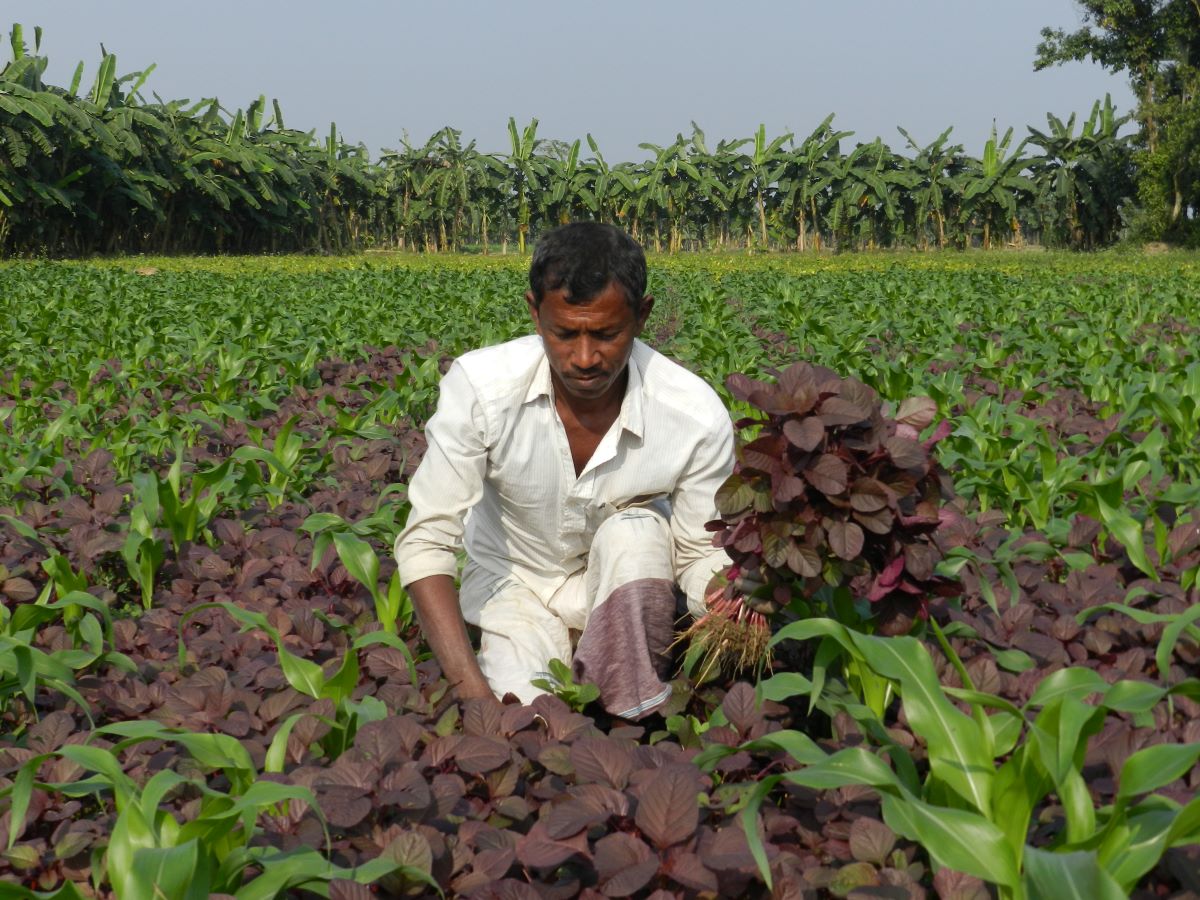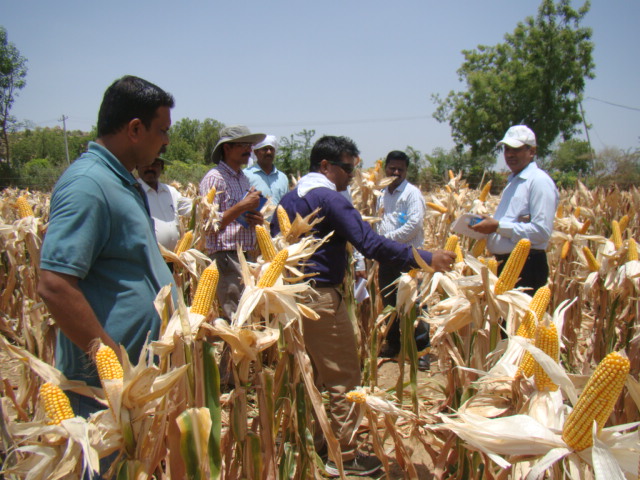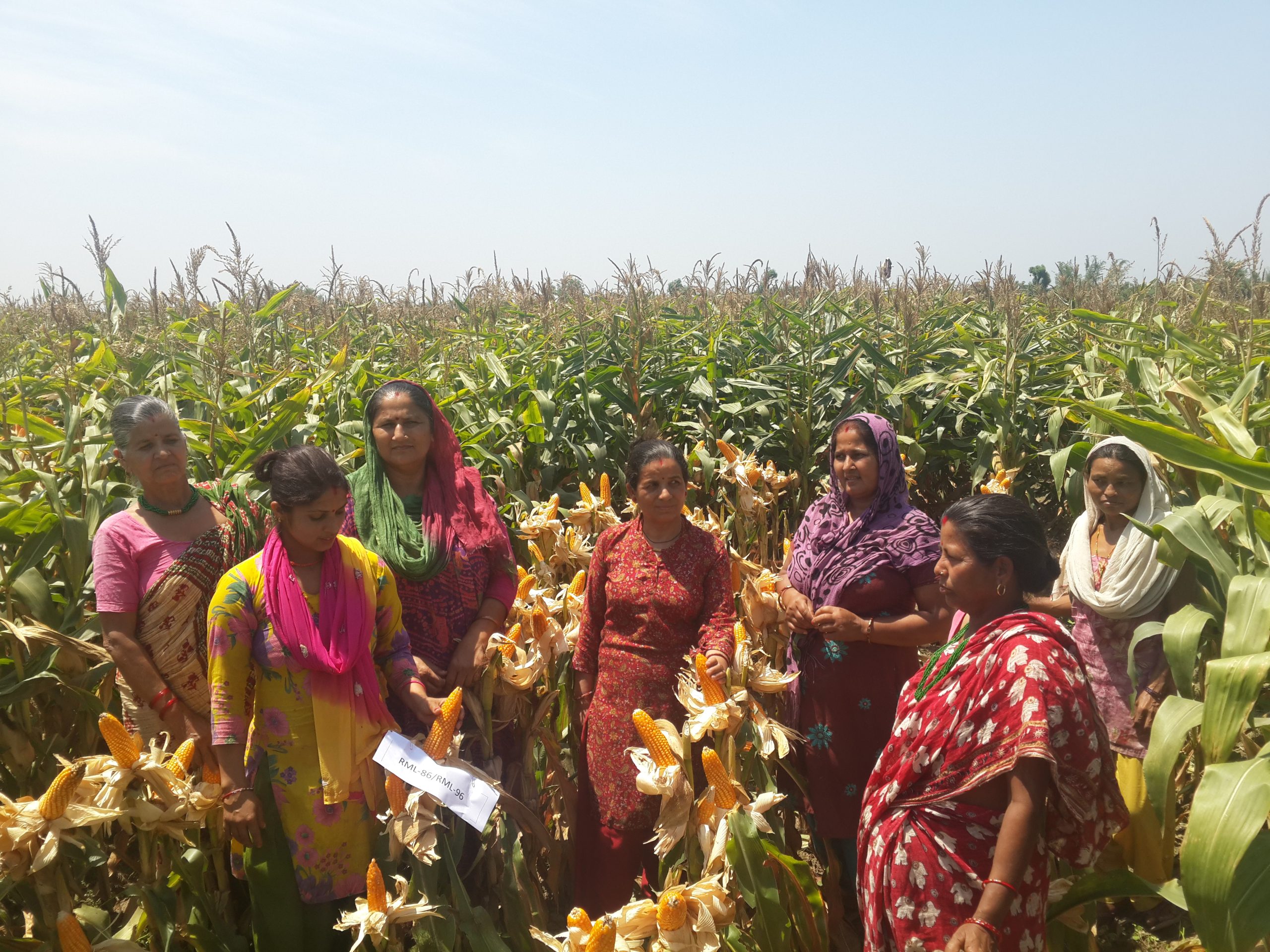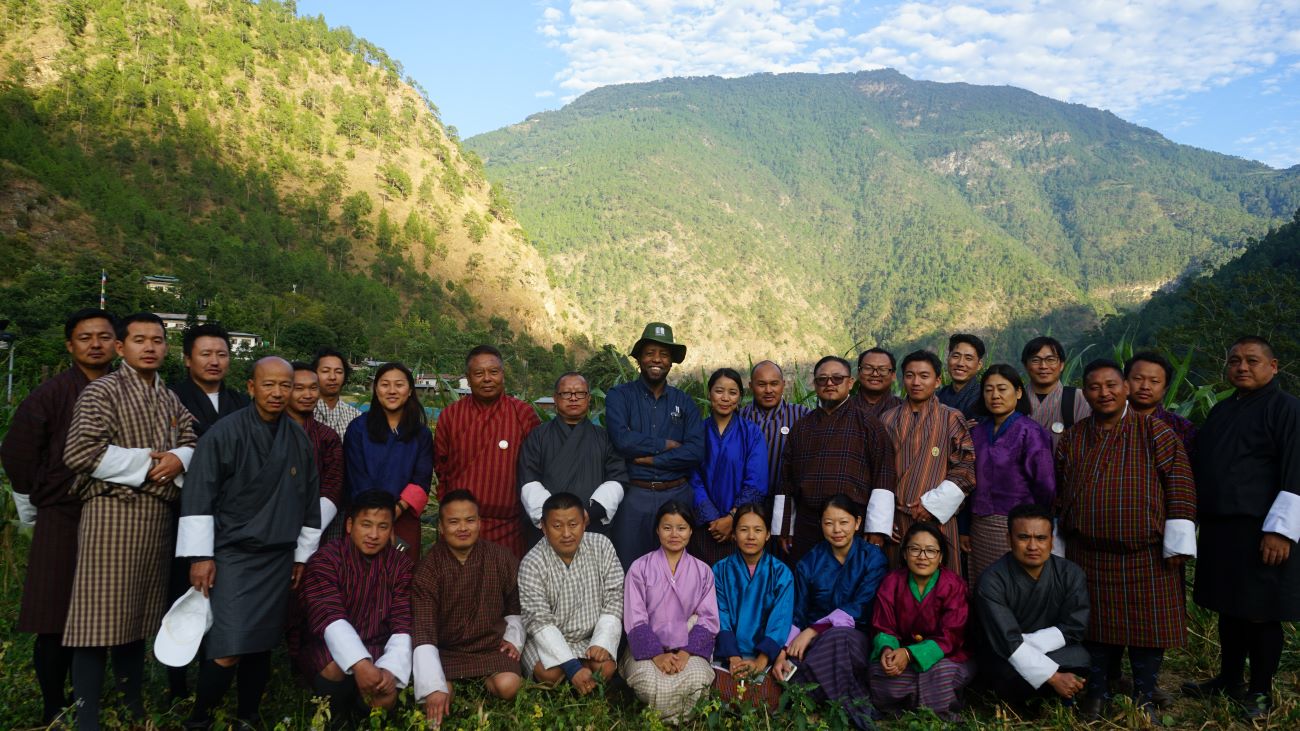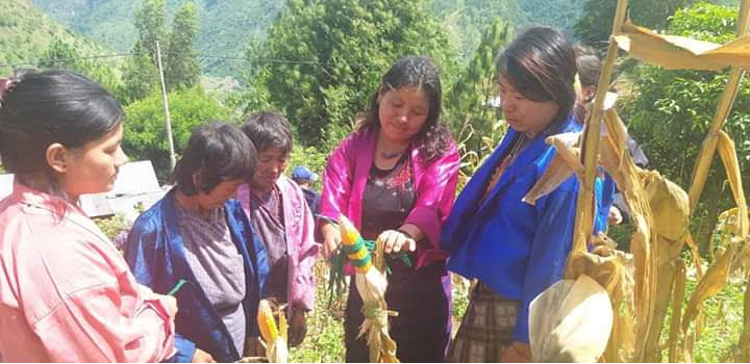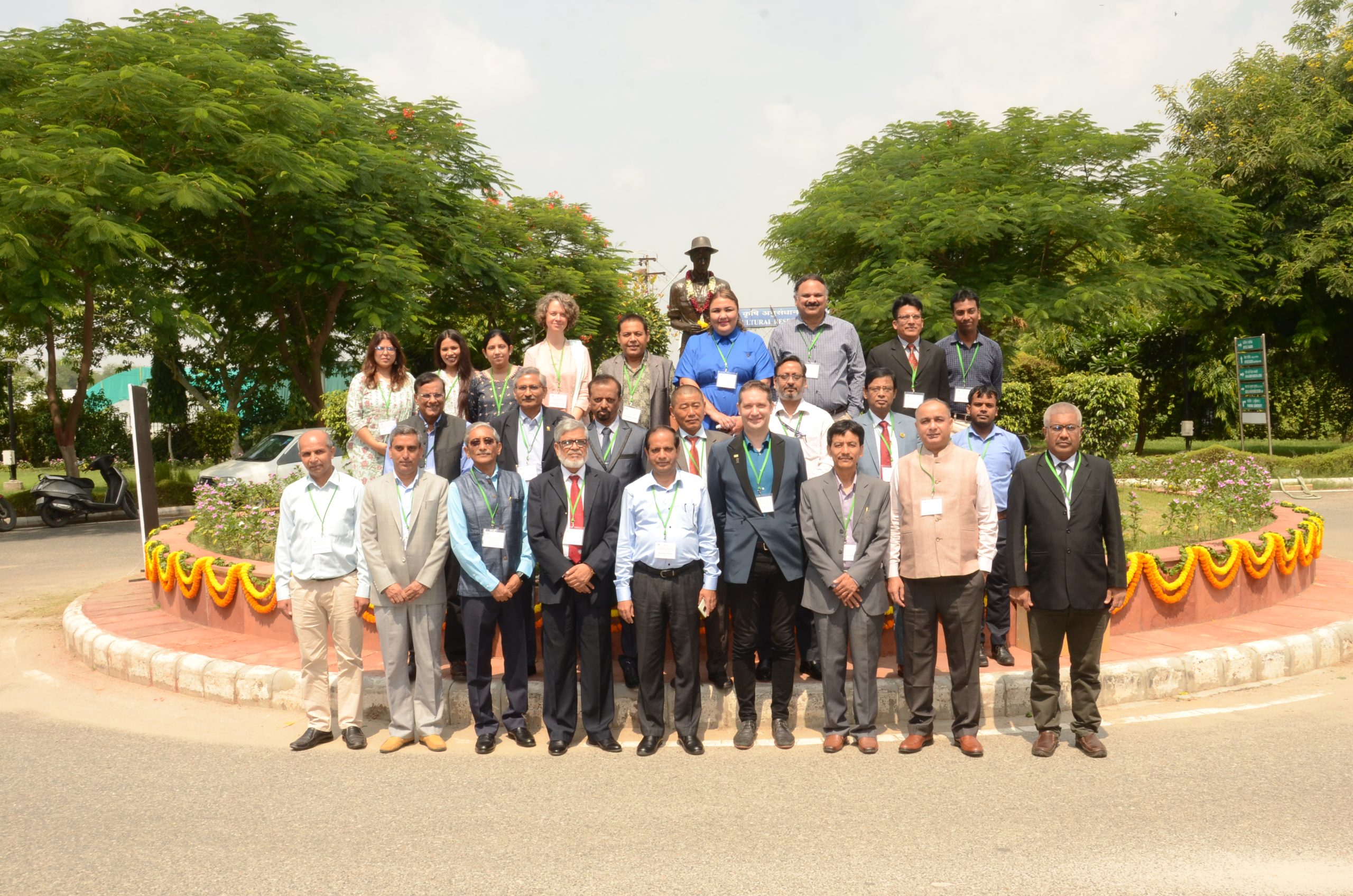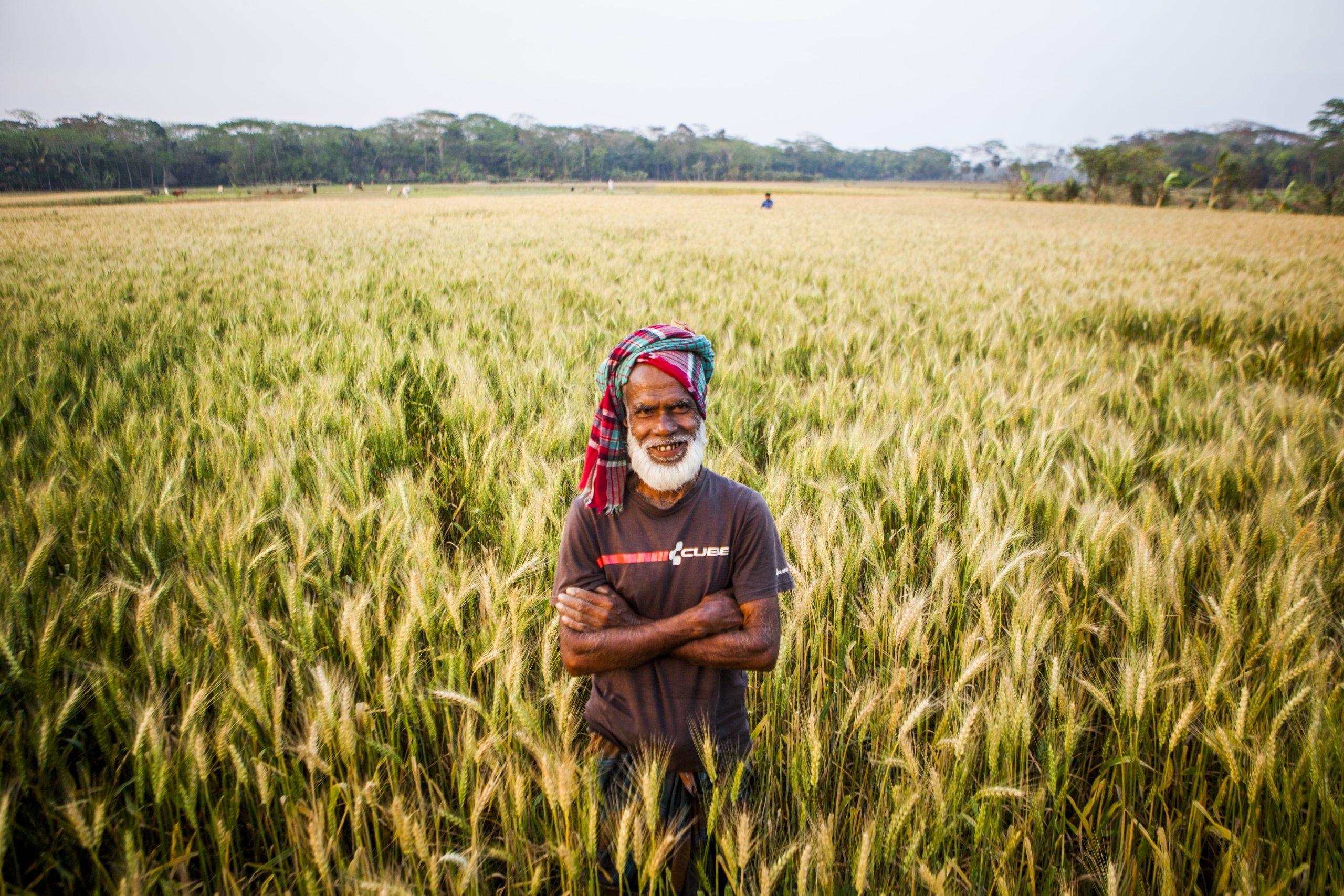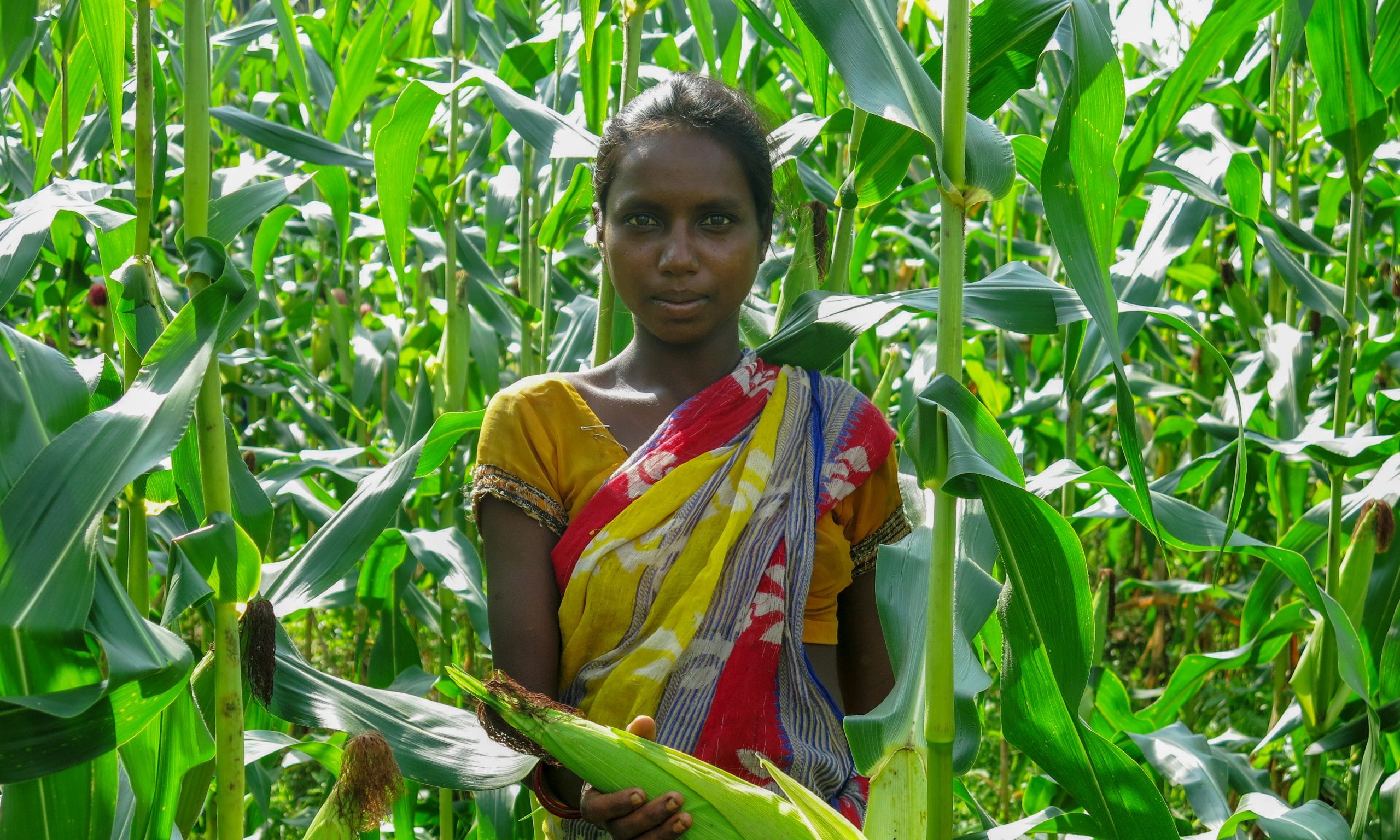Bhutan
Heat tolerant maize: a solution for climate change-induced 360◦ water deficits
 Climate adaptation and mitigation
Climate adaptation and mitigation
Heat tolerance and high yield potential are essential traits in maize to adopt climate change effects in lowland tropics.
Heat tolerant maize hybrids: a pursuit to strengthen food security in South Asia
 Climate adaptation and mitigation
Climate adaptation and mitigation
CIMMYT’s systematic and targeted breeding strategy in South Asia helped develop 20 high yielding and heat-stress tolerant maize hybrids. The ongoing efforts strengthens the livelihood of farm families who are highly vulnerable to climate change in the Asian tropics.
Strengthening seed systems emphasized to enhance Bhutan’s seed and food security initiatives
 Capacity development
Capacity development
The mountainous Himalayan country is facing a reduction in the production of cereals, and an increase in productivity within the limited arable area is needed.
Farmers harvested double yield by adopting Wengkhar Hybrid Maize 1 in Bhutan
 Nutrition, health and food security
Nutrition, health and food security
A type of heat- and drought-tolerant maize is improving yields for Bhutanese farmers.
Expanding BISA expertise to new horizons in South Asia
 Nutrition, health and food security
Nutrition, health and food security
Senior government representatives from across South Asia join forces to consolidate food security in the region.
Can agriculture bring South Asian countries together?
 Climate adaptation and mitigation
Climate adaptation and mitigation
An article in Amar Ujala in India explores the cross-country collaboration instigated by the Borlaug Institute for South Asia.
2022 Excellence in International Service Award
 Environmental health and biodiversity
Environmental health and biodiversity
This award recognizes outstanding contributions to plant pathology by APS members for countries other than their own. Contributions may have been made through collaborative projects, sabbaticals, short- and long-term assignments with educational or governmental agencies, including, but not limited to, international centers and research institutes.
Bhutan and Bangladesh join forces to combat threat of rust diseases
 Capacity development
Capacity development
For the first time, Bhutan and Bangladesh are collaborating on evaluating Bangladeshi wheat lines for resistance to yellow and leaf rusts.
USAID’s Feed the Future initiative highlights CIMMYT heat tolerant maize breeding
 Climate adaptation and mitigation
Climate adaptation and mitigation
The Feed the Future initiative of the U.S. Agency for International Development (USAID) featured CIMMYT’s Heat Tolerant Maize for Asia (HTMA) project in a recent newsletter, highlighting it as an exemplary public-private partnership. Launched in 2013, the project is developing heat-resilient hybrid maize for resource-poor smallholder farmers in South Asia whose livelihoods are threatened by climate change.
New USAID lead for climate-resilient cereals portfolio visits Heat Stress Tolerant Maize for Asia
 Climate adaptation and mitigation
Climate adaptation and mitigation
Heat stress-resilient maize hybrids for Asian farmers
 Climate adaptation and mitigation
Climate adaptation and mitigation
The “2nd Annual Progress Review and Planning Meeting for the HTMA Project” was held 22-23 July at UAS, Raichur in Karnataka, India. To take advantage of the presence of renowned scientists at this newly established agricultural university, the inaugural session of the meeting was organized as a special seminar on “Global initiatives on climate resilient crops.”
